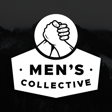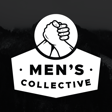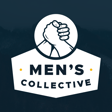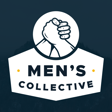
The #1 Force Shaping Masculinity (It’s Not What You Think)
In this episode of The Men’s Collective Podcast, Travis Goodman, LMFT, sits down with Dr. Brendan Hartman to explore the unspoken rules of masculinity that shape men’s lives—and how to finally break free.
From peer group pressure to self-policing behaviors, Brendan reveals how many men unknowingly stay trapped in invisible “cages” of outdated masculine norms, limiting emotional expression, vulnerability, and authentic confidence. Together, Travis and Brendan unpack:
- Why peer groups influence masculinity more than fathers or media
- How self-policing keeps men stuck in silence, shame, and isolation
- The contradictions men feel between their true self and the version society expects
- Why emotional vulnerability is actually a strength, not a weakness
- Practical steps to redefine masculinity, open the “cage door,” and live with more authenticity
This episode challenges outdated scripts of what it means to “be a man” and invites you to consider: Where in your life are you silently policing yourself? What would it look like to show up as your true self instead?
If you’ve ever felt stuck, disconnected, or trapped by expectations—you’re not alone. Join the conversation and take the first step toward authentic masculinity, purpose, and connection.
🎧 Listen now on Spotify, Apple, & YouTube or visit menscollective.co to go deeper.
JOIN THE COLLECTIVE:
JOIN THE MEN'S COLLECTIVE: CLICK HERE
JOIN THE MAILING LIST & GET INVOLVED!
CLICK HERE: MAILING LIST
INSTAGRAM: MENSCOLLECTIVE.CO
WATCH ON YOUTUBE: WATCH HERE
Connect and Support Travis:
YouTube: Travis Goodman
Instagram: @travis.goodman.lmft
Web: TravisGoodmanLMFT.com






